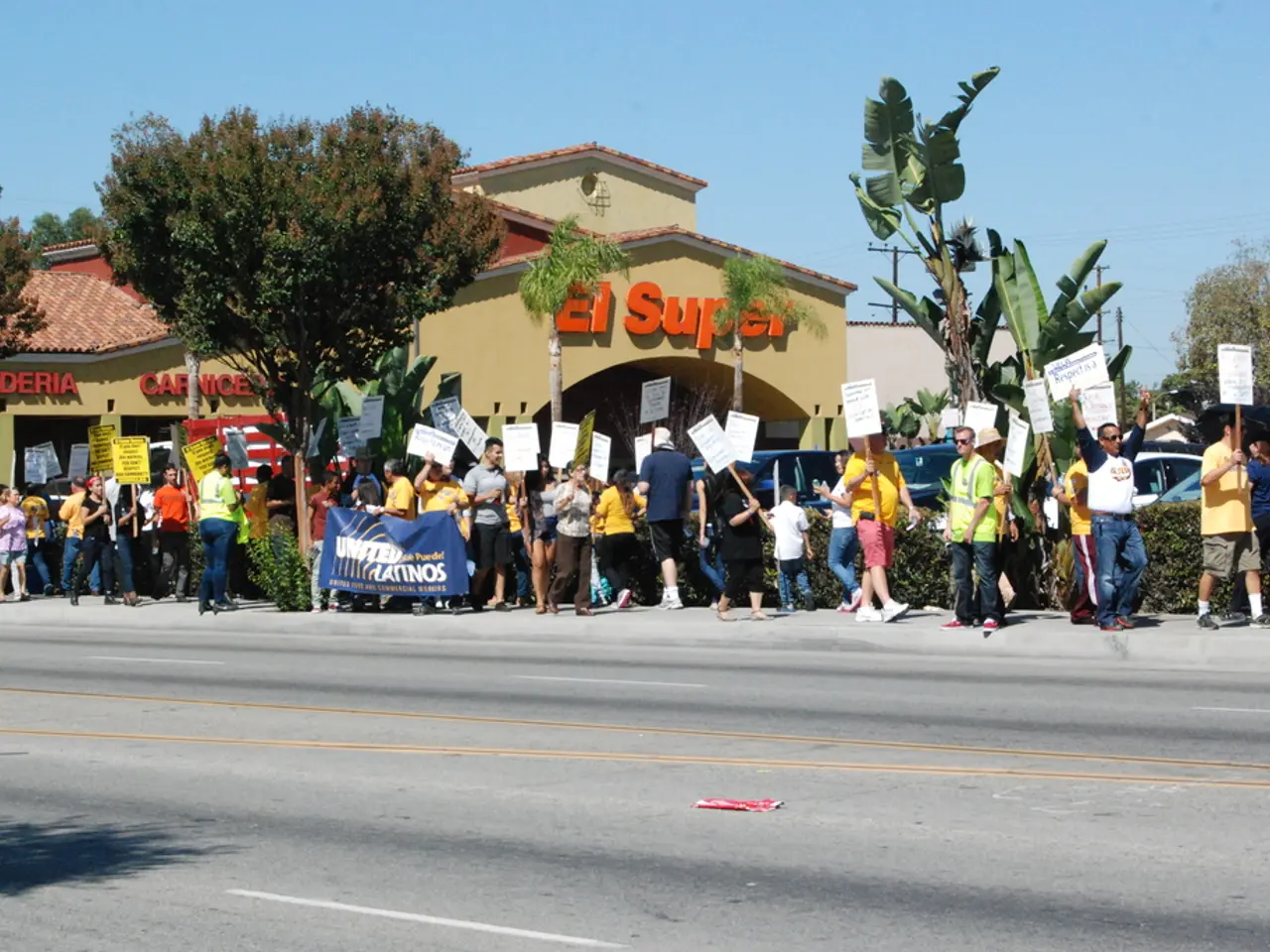EU elections focus on galvanizing voters
In the upcoming European elections, a complex landscape is unfolding, characterised by declining trust in democratic institutions, disinformation campaigns, and the continued rise of the Alternative for Germany (AfD).
Traditionally, voter turnout in European elections has been low, and this trend could be exacerbated by the current general uncertainty. The skepticism among Germans about the effectiveness of democracy in solving problems further adds to this uncertainty.
However, mobilisation is crucial for all parties in this election. The Greens, for instance, achieved their historic best result in the last European election, while the SPD and Union each achieved their historic worst. The success of the Greens, despite being frequent victims of political violence and targeted by disinformation campaigns, underscores the importance of mobilisation.
The AfD, on the other hand, has managed to maintain a strong presence, despite internal party conflicts. The party, which has historically benefited from being an opposition and protest party, achieved around 10.3% in the 2019 European elections. Other parties that have followed a similar path include Viktor Orbán's Fidesz party in Hungary and the German Left party (Die Linke).
The AfD's success is not solely due to its own efforts. Disinformation campaigns, primarily from Russia, are strengthening the political dynamic in the European election campaign, aiming to cause uncertainty and influence the agenda in favor of the AfD. The AfD has also significantly invested in the expansion of its content networks and TikTok accounts, achieving considerable reach there.
In response, democratic parties typically rely on traditional campaigns and primarily advertise their positions, while campaigns that exclusively aim at mobilization remain the exception. However, the challenge of creating a counterbalance to the right-wing extremist influence of the AfD in the digital space is large.
One strategy being considered is giving classical media and classical advertising a greater significance to offset the strategic weakness on social media. This may seem anachronistic, but it could be strategically correct in this election campaign.
The Union, in particular, has been criticised for trying to pick up topics initiated by right-wing extremist networks to gain short-term reach, which contributes to the normalization of the spins and topics set by the AfD. This tactic, however, risks undermining the Union's credibility and strengthening the AfD's position.
Despite these challenges, there are signs of hope. Ursula von der Leyen, EU Commission President, may provide an advantage for the CDU/CSU due to her high recognition. The parties that have faced setbacks in the past, such as the SPD and the Union, will need to find new strategies to regain the trust of the voters and increase their turnout.
The current German federal government, with its lowest approval ratings in history, will also be closely watched. Their performance in the European elections could have significant implications for the future of German politics.
In conclusion, the upcoming European elections promise to be a fascinating and complex contest, with the rise of the AfD, disinformation campaigns, and declining trust in democratic institutions shaping the political landscape. The parties that can effectively mobilise their supporters and counter the influence of the AfD will likely emerge as the winners.
Read also:
- Lu Shiow-yen's Challenging Position as Chair of the Chinese Nationalist Party (KMT) Under Scrutiny in Donovan's Analysis
- Japanese leader stepping down from office
- Leaders Pashinyan and Aliyev convene at the Shanghai Cooperation Organisation's annual gathering
- Policies proposed by Prabowo are causing a mix of optimism and unease among Indonesians








